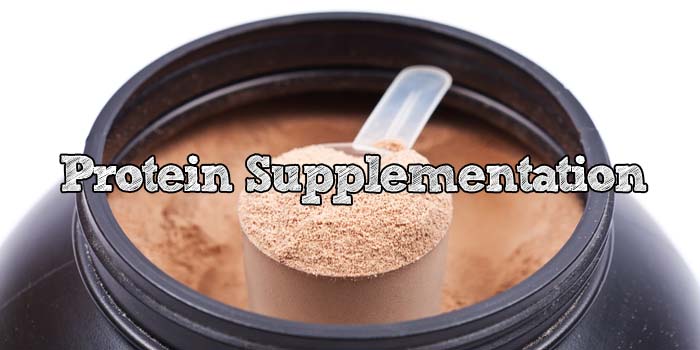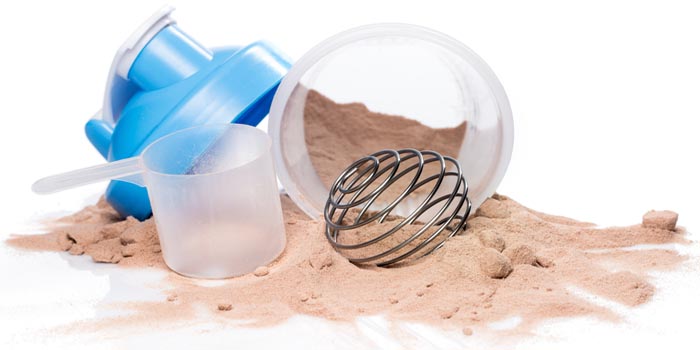
How much Protein do I Need?
In Australia, the Recommended Daily Intake (RDI) of protein is averaged at 50g per day. The problem with these recommendations is that it does not factor in several things that should be taken into account, for example: an individual’s body weight, lean mass, total daily energy expenditure. This is why it is not recommended to follow these general guide lines, but to calculate what protein intake is best suited for your needs. A good starting point would be for a sedentary person to consume roughly double the RDI in protein.
For Individuals involved in intense exercise programs, it is recommended to have a much higher protein intake than those who are sedentary.
While there are many different scientific studies providing answers on to what the perfect amount of protein to eat daily is, I have put together what rough numbers nearly all studies show to be the most effective ranges to aim for. Remember these are rough guide lines, each individual will have different protein intake requirements based on many factors, below is simply some easy ranges to understand roughly what you should aim for, this can be a good place to start.
Recommended Protein Intake for Sedentary population (Rounded):
Grams of protein per body weight in Pounds: 0.5g/lb – 0.7g/lb
Body weight in pounds – Grams of Protein to consume:
- 100 pounds – 50g to 70g of protein
- 125 pounds – 62g to 87g of protein
- 150 pounds – 75g to 105g of protein
- 175 pounds – 87g to 122g of protein
- 200 pounds – 100g to 140g of protein
Grams of protein per body weight in kilograms: 1.2g/kg – 1.5g/kg
Body weight in kilograms – Grams of Protein to consume:
- 45 kilograms – 54g to 67g of protein
- 60 kilograms – 72g to 90g of protein
- 70 kilograms – 84g to 105g of protein
- 80 kilograms – 96g to 120g of protein
- 90 kilograms – 108g to 135g of protein
Recommended Protein Intake for exercising individuals (Rounded):
Grams of protein per body weight in Pounds: 0.7g/lb – 1g/lb
Body weight in pounds – Grams of Protein to consume:
- 100 pounds – 70g to 100g of protein
- 125 pounds – 87g to 125g of protein
- 150 pounds – 105g to 150g of protein
- 175 pounds – 122g to 175g of protein
- 200 pounds – 140g to 200g of protein
Grams of protein per body weight in kilograms: 1.5g/kg – 2.2g/kg
Body weight in kilograms – Grams of Protein to consume:
- 45 kilograms – 68g to 99g of protein
- 60 kilograms – 90g to 132g of protein
- 70 kilograms – 105g to 154g of protein
- 80 kilograms – 120g to 176g of protein
- 90 kilograms – 135g to 198g of protein
Why Supplement Protein Powders? Is it Necessary?
Protein supplementation is definitely not necessary or required by any means, as you can reach your required protein intake through whole foods alone, but it can make your diet much more manageable and flexible to supplement in protein. When eating only whole foods to meet your protein intake, you are going to be consuming not just the proteins that are found in the foods, but everything else along with it, for example: if you eat a large cut of red meat, depending on the cut, you are going to be eating a large quantity of fat along with that.
This is not necessarily a bad thing, but if you are finding it hard to eat enough protein-dense whole foods to make up your intake requirement, this is where protein powders can make up the difference. Consuming 150g+ of protein every day can become a real challenge for some, from whole foods alone.
Protein powders are extracted proteins from various sources, depending on which you choose. This means the protein has been removed from a food source and powdered, mixed with various other ingredients and flavourings and made for easy consumption. Most protein powders will have other common forms of added nutrients and ingredients such as BCAA’s and other amino acids, Vitamins, Minerals, Enzymes, Pro/Pre-Biotics, Fibre and others ingredients that may be beneficial to the body. This potentially makes a good protein powder a great supplement along with whole food proteins, allowing the individual to be more precise about his/her protein intake.
Another great benefit of protein powder supplements is the large range of powders available gives the user the chance to create shakes. Protein Shakes can be a great daily nutrient bomb for anyone as you can purchase a powder to your requirements and simply construct a recipe with exact quantities of other whole foods you require, into one easy to consume shake.
I enjoy coming up with new recipes that hits an exact macronutrient make up using powders and whole foods, for example: I may require a meal that contains 30g protein, 50g carbohydrates and 10g fat. Using a Whey Isolate protein powder with 30g protein per serving and minimal fillers (1g fat, 0g carbs), I could blend together one serving of a Whey Isolate Powder, 60g of Blueberries, 100g of Banana, ½ cup oats, a small handful of Almonds and some Flax Seeds in Almond milk to hit my required macronutrient make up, along with a large serving of vitamins and minerals that are tailored to my dietary requirements. This is one of the great benefits of using protein powders.
Should women use protein powders?
Higher intakes of protein or the use of protein powders is not gender specific; the benefits are going to be mutual for both men and women. There are myths of how using a protein powder and lifting weights as a woman is going to make you big, bulky, muscular and masculine. This is not the case as men have roughly 10 times more testosterone in their bodies and still have to work hard to build new lean muscle tissue. It is very difficult for women to put any significant muscular size on, not only will it take years of dedication and effort, but it will never naturally amount to anything near that of a man’s ability to grow new lean muscle mass.
Women can utilize a higher protein intake with resistance training to grow lean muscle mass just as any man can, the progress will just be much slower and limited. With hard work any women achieve a lean, muscular and fit athletic look, but they will never get big, bulky or masculine from doing so, naturally.
When should I take my protein?
There are many factors involved on when to consume protein, most different views on this are usually related to maximizing potential muscle growth, maintaining a positive nitrogen balance, stimulating your metabolism and setting your body up for recovery from exercise.
The most important timing of consuming protein, by far, is Post-Workout. These hours after a workout are going to be the most beneficial for your body to intake protein, even more so if consumed along with a serving of carbohydrates.
Below outlines some of the details behind when to consume protein and why it benefits you to consume it in this timing.
Within 30 minutes of waking: Consuming roughly 30g of protein within 30 minutes of waking up in the morning is a great way to not only boost your metabolism first thing in the morning, but to keep you in a positive nitrogen balanced state after fasting. Most experts recommend consuming a good source of protein with breakfast as part of a fat loss diet program. It is recommended to consume a fast digesting source of protein in this period.
Pre-Workout:
Protein pre-workout has many benefits, maintaining positive nitrogen throughout the workout and allowing the muscles to have a readily available source of BCAA’s to help breakdown and fuel the muscles for the workout. It is recommended that a pre-workout source of protein is also consumed with a source of carbohydrates, between 20-60g of carbohydrates pre-workout is a good range to start with. A pre-workout protein shake with carbohydrates could ideally be taken 1.5h-3h before training. This timing is recommended to have a fast digesting source of protein shake.
Post-Workout:
This is by far the most important time to consume protein, along with a good quantity of carbohydrates for maximum benefits. The science shows us that between 1-2 hours post-workout is the most efficient time to consume calories, more importantly, protein and carbohydrates. This will illicit the biggest anabolic response from your body and boost your hormonal response from the workout you just finished, as your body will be primed to receive nutrients and energy better post-workout, than any other time. This time window is best utilized by using a source of fast digesting protein and carbohydrates, for example: a Whey protein powder and some fast digesting carbohydrates.
Between Meals:
Consuming protein between meals is not at all required but some people prefer to consume a many small meals per day, spacing out their daily food intake into 4, 5, 6 or even 7-8 meals. Any type of protein can be consumed between meals, as most people consuming protein in this timing are simply making up their daily protein quota and spreading their protein intake out over the course of the day’s meals. It is recommended to consume a slow digesting source of protein or a protein of mixed sources with different digestion rates.
Before Bed:
Having a slow digesting source of protein before bed can help keep your nitrogen balance positive along with keeping a steady supply of amino acids for your muscles to utilize. It is commonly recommended to consume a Casein, Milk or Egg based protein in this time as they generally have slow rates of digestion.
